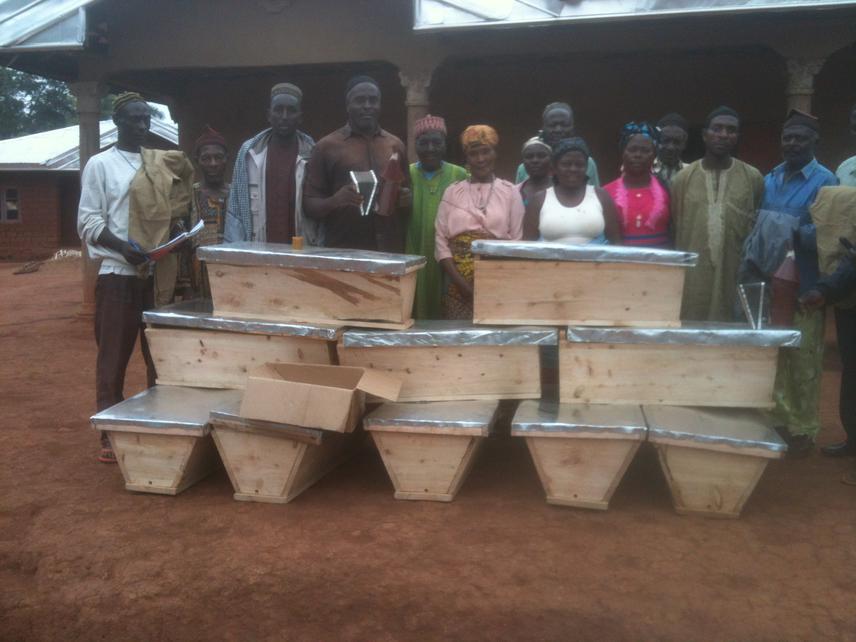Gilbert Njodzeka
Other projects
30 Apr 2010
Reforestation and Conservation of the Bikov Forest, Bui Division, North West Cameroon
Green Care Association promotes proper environmental management through education, tree nursing, tree planting in community forests and water sheds, alongside training in sustainable agricultural practices. This project will focus on the reforestation of four remote forest areas while training people in the surrounding villages in mushroom cultivation and bee farming.

Hives Bee Harvesting Equipment Donation Mbokam.
Based in the Montane Forest region of the Northwest Cameroon, Green Care Association (GCA) has been working for over a decade to restore and sustain remnants of Bamenda highland forest and its environs. Ever since the coffee market crashed in the 1980s, former coffee farmers have been forced to revert to unsustainable subsistence farming. Forests have been devastated by slash and burn agriculture, bush fires, hunting of bush animals, over grazing, and unregulated planting of eucalyptus. These practices have led to erosion, poor crop yield, food and water insecurity, and bitter conflicts over land and available resources.
In order to reduce pressure on the available land and forest resources while at the same time creating alternatives sources of income, GCA will organize apiculture and mushroom cultivation workshops, and establish a cooperative system so that farmers will be sure of a steady source of income. As part of the apiculture trainings, at least 300 farmers shall learn the importance of planting bee-friendly trees, preserving montane forest remnants, and they will be assisted with take-off materials in the domain of bee keeping, including hives and honey harvesting equipment. GCA shall organize additional training workshops in mushroom cultivation, which uses waste material and very little land space, for 200 farmers who will learn the benefits of mushroom consumption, business practices, and practical aspects of mushroom farming.
In addition to arresting land destruction, GCA will use funds to restore the now diminished remnants of original montane forests. Working closely with the villages located on the edge of these vulnerable native forest patches, we will set up demonstration farms and give lessons on the benefits of each tree to be nursed and planted to sustain remnants of the forest. The tree in the nurseries shall be bee friendly, medicinal, and of some economic value and shall be planted within community forests by the inhabitants. In these villages, the bee farmers will rely heavily on nectar from trees in these forests, making them to be stakeholders in forest preservation.